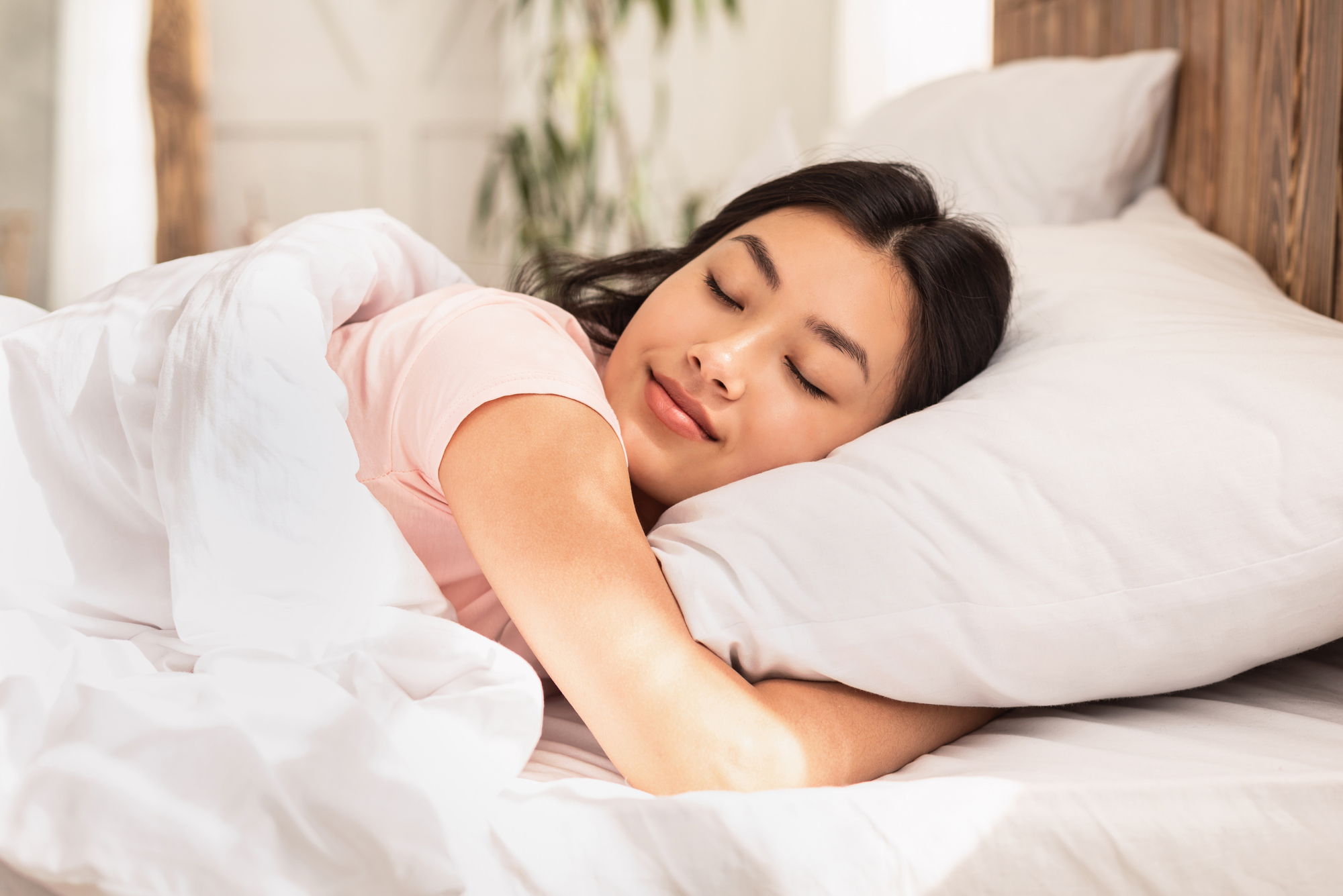One of the most important yet frequently overlooked parts of our overall well being is sleep. Sleep is a key pillar to your health and poor sleep quality and quantity can lead to negative physical, emotional, and mental consequences. Most individuals require close to 8 hours of sleep a night, yet most of us struggle to reach this or find ourselves having trouble falling or staying asleep. Keep reading to find 8 ways to boost your sleep habits and overall health and well-being.
1. Say hello to comfort.
You’re most likely going to spend about one third of your life sleeping – invest in it! If economically feasible, treat yourself to some cozy sheets, cute pajamas, comfortable pillows based on if you’re a side/back/stomach sleeper, and a weighted blanket. Limit light in your bedroom with some stylish blackout curtains or a sleep mask. If you can’t sleep in complete silence, having a fan, white noise machine, or app on your phone can create a calming and soothing environment. Or, if you can’t stand noise, swing by your local store to pick up some earplugs. Finally, try to keep your room below 70 degrees for optimal sleeping temperatures.
2. Notice your food and liquid intake.
Going to bed with an uncomfortably full stomach can hinder your sleep quality – just as going to bed with an uncomfortably empty stomach can, too! If you’re too full or too hungry as you jump into bed, your chances of falling and staying asleep lower drastically. Additionally, drinking too much water could lead to you getting up in the middle of the night to pee (the worst!) yet not drinking enough during the day can leave you parched and waking up at 2 AM reaching for your favorite water bottle. Make sure you’re eating and drinking enough during the day so your stomach and bladder can rest, too.
3. Keep your caffeine for the morning.
Although coffee and tea can be a savior to help us climb out of bed, consuming caffeine in the afternoon and closer to your bedtime can keep you up and alert. Caffeine can stay in your system for around ten hours, so if you’re having an espresso at 2 PM, don’t be shocked if you’re counting sheep at 11 PM.
4. Observe your alcohol intake.
Do you find yourself falling asleep quicker if you have a drink or two before bed? This may be the case, yet consuming alcohol doesn’t equate to a better night’s sleep. Alcohol can cause you to wake up more throughout the night and have less restful sleep by disturbing your REM cycle, leading to feelings of grogginess or a hangover the next morning. Alcohol in moderation is always recommended and you’ll most likely find yourself sleeping better without it.
5. Move your body throughout the day.
Since working from home is more common than ever, humans are moving their bodies less due to no longer having commutes, walking to grab lunch, or having the privilege of accessing a gym in their office building. If you’re spending 99% of your day in a sedentary position, your mind may be tired, yet your body may be craving some movement. However, working out too close to bed can leave your heart rate pumping and not ready for sleep, so try to do it in the morning or afternoon. Adding in a lunch hour walk, a stretch session, or a workout before work or before dinner may help you catch those zzz’s easier.
6. Limit screen time as your bedtime approaches.
We’ve all heard this one – easier said than done, right? Research shows that too much blue light isn’t helpful for falling or staying asleep. However, since some people may use technology to relax or unwind after a busy day (or may be working late), blue light glasses may be your new best friend. If you can find another hobby or pastime to engage in sans screens, such as reading or drawing, try doing these closer to your bedtime and see what happens.
7. Write out your thoughts and to-do list.
Ever find yourself lying awake thinking about all the things you have to do tomorrow, this week, this month? Yes, me too. Keeping a sticky note or a notepad next to your bed can help you organize all of life’s to-dos so you don’t have to worry about remembering it the next day. For even more organization and clarity, look to organize your to-do list by creating labels such as ‘Tomorrow To-Dos,’ ‘This Week To-Dos,’ and ‘This Month To-Dos.’ Or, if your thoughts are moving at rapid speed, try journaling to work through these feelings before bed.
8. Relax your mind.
Mindfulness, meditation, yoga, listening to calming music, and stretching can all help relax your mind and lower overall stress levels. Listening to a guided meditation, doing some gentle yoga poses and stretches, and engaging in mindfulness by concentrating on your breath can all be done from the comfort of your bedroom. Try dimming the lights and lighting a candle to create an even more peaceful environment.
-Written by Carolyn Simon, MA




